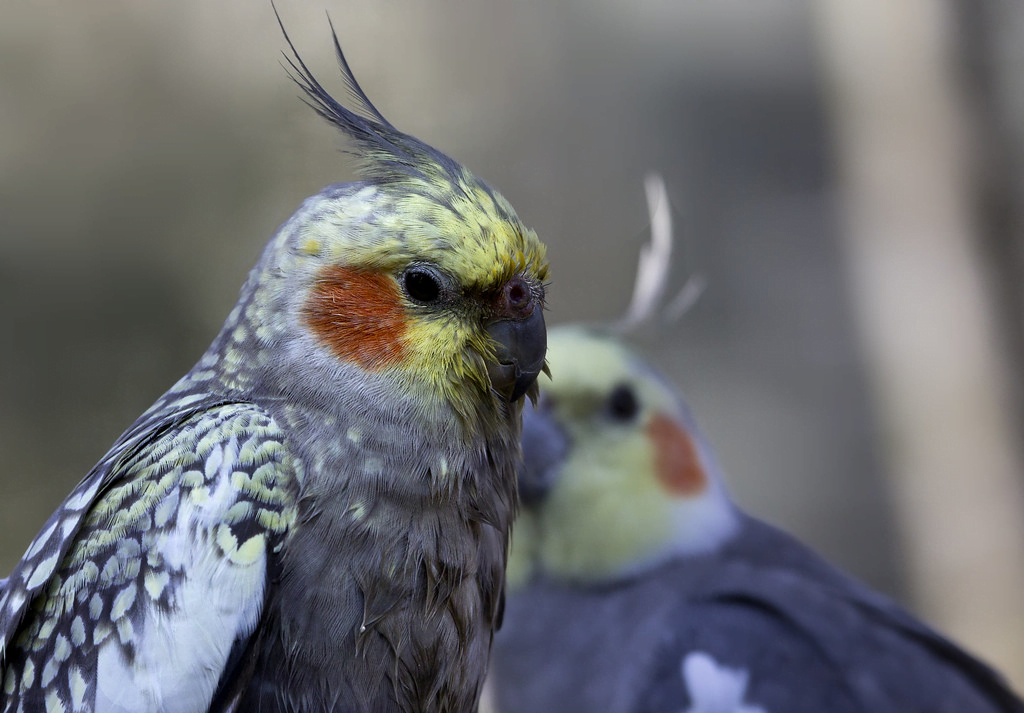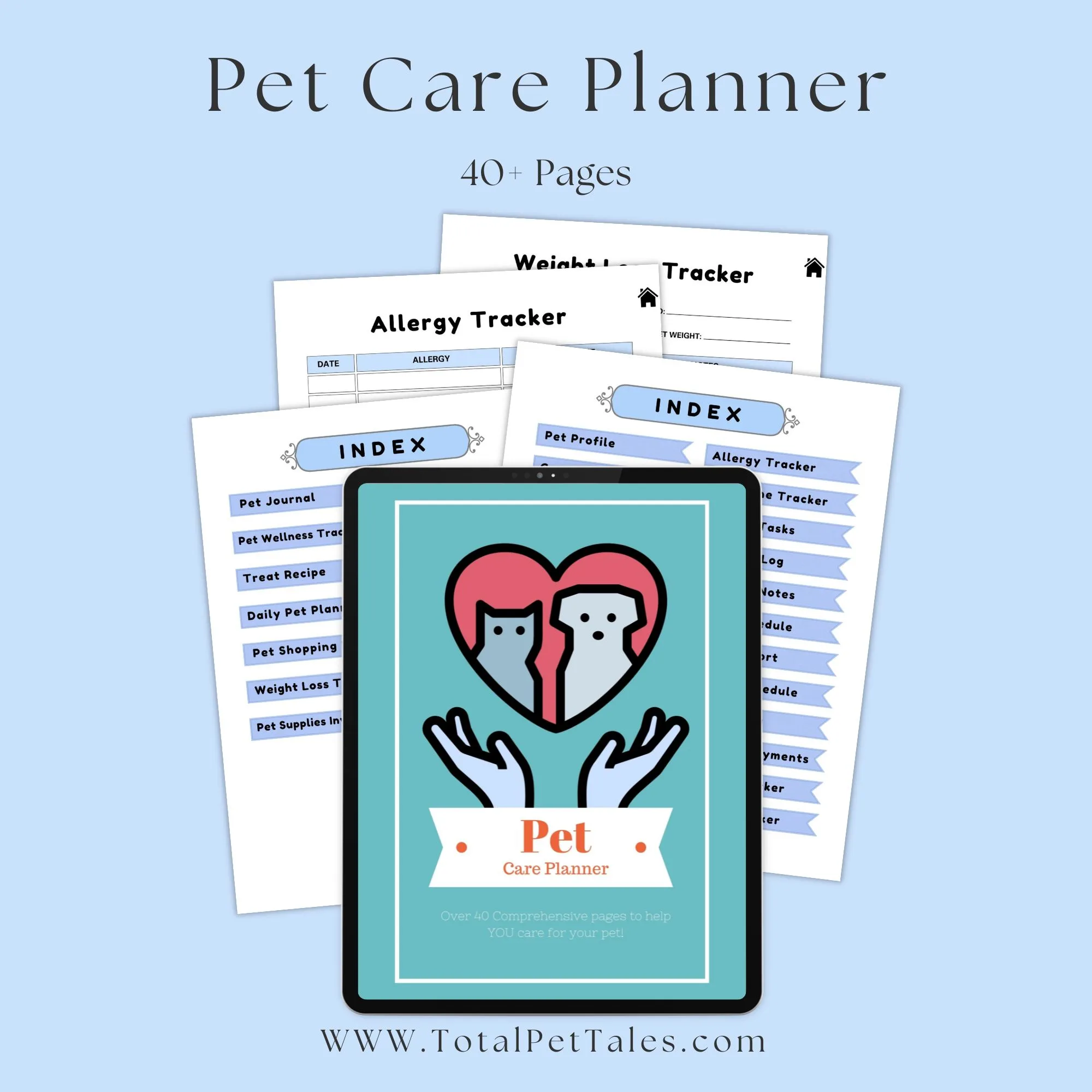Cockatiels, with their distinctive crest and charming personality, have soared in popularity as one of the preferred pet birds worldwide. These small parrots are not only known for their ability to mimic sounds but also for their social nature, making them ideal companions. Originating from the wilds of Australia, cockatiels come in a variety of colors, thanks to selective breeding. Their care requires attention to diet, cage size, social interaction, and mental stimulation. Understanding the nuances of cockatiel behavior and health is crucial for prospective and current owners alike. This introduction aims to shed light on the essential aspects of keeping a cockatiel happy and healthy, providing a solid foundation for those looking to welcome these feathered friends into their homes.
Key Takeaways
- Cockatiels are a popular choice for pet birds due to their friendly and affectionate nature, as highlighted in the breed overview.
- Regular vet check-ups and a balanced diet are crucial for maintaining your cockatiel’s health, as discussed in the Health and Care section.
- Creating a safe and engaging environment is key to living harmoniously with a cockatiel, ensuring they have plenty of space to explore and toys to play with.
- When considering adding a cockatiel to your family, seeking advice from reputable breeders or adoption centers can help you find a healthy, well-socialized bird.
- Understanding the unique needs and behaviors of cockatiels, such as their social nature and need for interaction, will enhance your experience as a pet owner.
- Engaging with a community of cockatiel owners or experts can provide additional support and enrich your knowledge about caring for these charming birds.
Breed Overview
History
Cockatiels, native to Australia, were first discovered in the late 18th century. These charming birds quickly captivated explorers with their gentle nature and beautiful plumage. From their wild origins, cockatiels have journeyed to become beloved pets around the globe.
Breeding has played a crucial role in this transformation. Through selective breeding, enthusiasts have developed a wide range of color mutations. These include the classic grey as well as more exotic variations like lutino and pied. This diversity has only increased their appeal as companion animals.
Physical Characteristics
Cockatiels are known for their compact size, typically measuring between 12 to 13 inches from head to tail and weighing about 90 to 120 grams. This manageable size makes them suitable for most living environments.
They boast an array of color mutations beyond the original grey. Options now include lutino, pied, pearl, and cinnamon among others. Each mutation presents a unique combination of colors and patterns, making every bird distinct.
Their most notable features are the crest on their head and their long tail feathers. The crest can rise or flatten based on the bird’s mood, offering insights into its emotional state.
Personality and Temperament
Cockatiels are renowned for their friendly and affectionate nature. With proper socialization from a young age, these birds develop strong bonds with their human families. They thrive on interaction and can become quite attached to their owners.
These intelligent birds possess the ability to learn various tricks and mimic sounds, including whistles and sometimes speech. Such capabilities highlight their need for mental stimulation and engagement.
However, potential owners should be aware of their need for attention. Cockatiels can develop behavioral issues if they feel neglected or bored. Ensuring they have enough interaction and enrichment is key to maintaining their well-being.

Health And Care
Common Health Issues
Cockatiels face several health challenges, including respiratory infections, feather plucking, and obesity. These issues can significantly impact their well-being. Regular veterinary check-ups are crucial for early detection and treatment. Owners should look out for signs of illness such as changes in behavior, appetite loss, and abnormal droppings.
Feather plucking often points to stress or nutritional deficiencies. To combat obesity, ensure your cockatiel has a balanced diet and adequate exercise. Recognizing symptoms early on can make a big difference in your pet’s health.
Dietary Needs
A balanced diet is essential for cockatiels. It should include seeds, pellets, and a variety of fresh fruits and vegetables. However, not all foods are safe for these birds. Avocado and chocolate are particularly toxic and must be avoided at all costs.
To support their beak and bone health, offering calcium supplements like cuttlebone is beneficial. This aids in preventing nutritional imbalances that can lead to serious health issues. Always ensure fresh water is available to keep them hydrated.
Exercise Requirements
Cockatiels require daily out-of-cage time for exercise and mental stimulation. Providing toys and designated play areas encourages them to stay active. This not only keeps them physically fit but also mentally sharp.
However, it’s important to safeguard their environment from potential dangers such as open water sources or toxic plants. These precautions help prevent accidents during playtime, ensuring your feathered friend enjoys a safe exploration space.
Grooming
Regular grooming practices include nail trimming and wing clipping to prevent injuries. Offering baths or mist sessions contributes to healthy feathers by removing dust and debris.
Monitoring the beak for overgrowth is another critical aspect of grooming; professional help may be needed if issues arise. Proper grooming maintains not only the appearance but also the overall health of cockatiels.
Living with a Cockatiel
Training and Socialization
Training and socialization are crucial for a healthy relationship with your cockatiel. Early and consistent training ensures they become tame and well-bonded to their human companions. For success, use positive reinforcement such as treats or gentle praise to teach basic commands and tricks. This method not only strengthens your bond but also keeps them mentally stimulated.
ializing your cockatiel helps prevent aggression and fearfulness towards humans and other pets. Introduce them to new people and animals gently and gradually, ensuring each experience is positive. Remember, patience is key in building trust.
Environment
A spacious cage is essential for your cockatiel’s well-being. It should have plenty of perches at different heights, along with a variety of toys to encourage play and exercise. The location of the cage plays a significant role in their happiness. Place it in a quiet yet social part of the house, where they can observe daily activities without being in the middle of chaos.
Be mindful of environmental dangers such as extreme temperatures and direct sunlight, which can be harmful to your bird. A stable environment prevents stress, allowing them to thrive.
Activities They Enjoy
Cockatiels love interactive toys and puzzles that challenge their intelligence. These activities prevent boredom and promote mental health. Creating a bird-safe play area outside their cage encourages exploration, an essential aspect of their physical health following the “Health And Care” section’s advice on regular exercise.
Music or sound toys are excellent for cockatiels since they enjoy mimicking tunes and noises. This not only entertains them but also provides mental stimulation.
Breeder Advice and Adoption
Choosing a Breeder
When looking for a cockatiel, finding a reputable breeder is crucial. These breeders ensure their birds live in clean, spacious environments. They also prioritize the health and happiness of each bird. It’s important to research breeders thoroughly before making a decision.
Visiting the breeding facility gives insight into the conditions of the birds’ living spaces. It allows potential owners to see how the birds interact with their environment and other birds. This visit can reveal much about the breeder’s care standards.
Asking for health records and genetic testing results is essential. These documents show the bird’s medical history and any hereditary conditions. Reputable breeders should provide this information willingly, demonstrating transparency and concern for their birds’ well-being.
Adoption
Adopting a cockatiel from shelters or rescue organizations is a heartfelt alternative to buying from a breeder. Many cockatiels in these places need homes. Adoption can be rewarding for both the bird and its new owner.
Adult cockatiels often have established personality traits. This makes it easier for adopters to find a bird that matches their lifestyle and preferences. Knowing what to expect from an adult bird can lead to a smoother transition into pet ownership.
It’s important to ask about the bird’s history and reasons for surrender when adopting. This information helps potential owners understand any special care or attention the cockatiel may need. Ensuring a good match between the bird and its new family is key to a successful adoption.
Misc.
Popular Names
Choosing the right name for a cockatiel is as delightful as it is important. Common picks include Sunny, Charlie, and Coco. These names reflect the vibrant personalities of these birds. It’s wise to observe your feathered friend’s behavior or unique markings before settling on a name. For instance, a cockatiel with a sunny disposition might suit the name Sunny perfectly.
Creativity plays a big role in this process. Names like Sky, Pepper, or Kiwi can add a touch of uniqueness. Remember, the name you choose will be with your pet for its life. Make it meaningful and reflective of your bird’s character or appearance.
Fun Facts
Cockatiels are not just any birds; they hold the title of the smallest members of the cockatoo family. This fact alone makes them fascinating companions. With proper care, their lifespan can stretch up to 20 years. This commitment means adopting a cockatiel is not just for the moment but potentially for decades.
Their behaviors offer endless entertainment and insight into their mood. Head bobbing is common when they’re excited or happy, while crest flaring can signal curiosity or mild agitation. Observing these behaviors provides a deeper connection between pet and owner.
Final Remarks
Cockatiels offer a unique blend of companionship and charm, making them ideal pets for avian enthusiasts. Through understanding their breed characteristics, health requirements, living conditions, and the process of adoption, prospective owners can ensure a harmonious relationship with these feathered friends. It is crucial to approach cockatiel care with diligence and love to foster a nurturing environment where they can thrive. Their well-being hinges on the commitment to provide a balanced diet, regular veterinary care, and an engaging habitat that simulates their natural surroundings.
Encouraging responsible pet ownership and adoption from reputable sources can significantly impact the lives of these birds and their human companions. As readers contemplate adding a cockatiel to their family, they are urged to reflect on the information shared and take proactive steps towards creating a lasting bond with these captivating creatures. Let the journey with a cockatiel begin with knowledge, preparedness, and an open heart.
Frequently Asked Questions
What is the lifespan of a cockatiel?
Cockatiels typically live between 15 to 20 years with proper care, including a balanced diet and regular health check-ups.
How can I ensure my cockatiel stays healthy?
Ensure your cockatiel has a varied diet consisting of seeds, pellets, fruits, and vegetables. Regular veterinary visits for health checks and vaccinations are also crucial.
What are the signs of illness in cockatiels?
Signs include changes in eating or drinking habits, abnormal droppings, feather plucking or loss, lethargy, and respiratory issues. Immediate veterinary attention is advised if these signs are observed.
Can cockatiels live with other pets?
Cockatiels can coexist with other pets if introduced carefully and supervised to ensure safety. However, individual personalities play a significant role in compatibility.
What advice do breeders give for first-time cockatiel owners?
Breeders recommend researching cockatiel care extensively, preparing an appropriate living space before bringing one home, and choosing a bird that matches the owner’s lifestyle and personality.
How do I adopt a cockatiel?
Consider adopting from shelters or rescue organizations. Ensure you’re prepared for the commitment and have the necessary setup ready at home. Visit multiple places to find a bird that bonds with you.
What should be included in a cockatiel’s living environment?
A spacious cage located in a safe, warm area away from drafts is essential. Include perches of various sizes for foot health, toys for mental stimulation, and dishes for food and water.







0 Comments